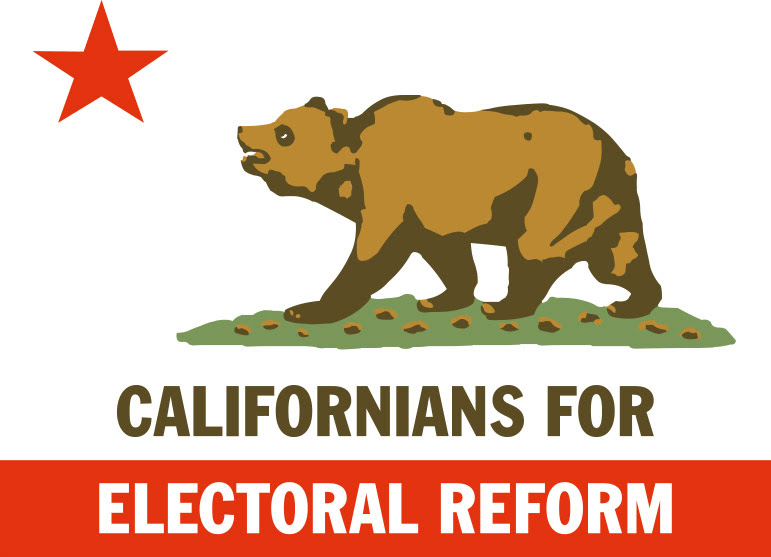Voice for Democracy | July/August 2019

July / August 2019 Newsletter
HOME RULE BILL ADVANCES
The FairVote / CfER Home Rule Bill continues to advance through the California Legislature. It has already passed the Senate and moved to the Assembly. In the Assembly, It passed the Committee on Elections and Reapportionment with no opposition and has been referred to Assembly Appropriations Committee. We expect it to be passed on the floor of the Assembly, and to be sent to Governor Newsom for his signature.
What does the Home Rule Bill do? It will allow general law cities, counties, school districts, and special districts — that is, the overwhelming number of jurisdictions in California, to use Ranked Choice Voting with voter approval. Currently, a jurisdiction would have to create a charter to use RCV, which most jurisdictions are not interested in doing. Bottom line, a very large number of jurisdictions would suddenly have the option to use RCV.
How can you help? It would be great if you could contact your state assembly member (using findyourrep.legislature.ca.gov) and the governor, and ask for their support for SB 212.Of course, donations to FairVote and CfER are always welcome and useful.
NATIONAL NEWS HIGHLIGHTS
FairVote reports that:
- 2018 had big wins and new RCV implementations in Maine, New Mexico, Massachusetts, Minnesota and Utah.
- Across the USA, more and more editorials and articles in support of RCV are being published.
- Democratic Party convention delegate selection rules include full use of RCV for party-run primaries in Alaska, Hawaii and Kansas, while early voters in Iowa and Nevada will also cast RCV ballots to determine delegates. Other states may still act as well – and expect many more from both major parties by 2024.
- On the local front, RCV continues to earn support in cities and states coast-to-coast. The Utah cities Payson and Vineyard are working with Utah RCV to prepare for their debut RCV elections this fall. New York City is buzzing with potential for RCV after a positive recommendation in the Charter Revision Commission staff report. While falling just shy of a green light, Nashville’s city council also considered putting RCV on ballot before deciding to wait until next year, and Albuquerque may decide to enact RCV for use this fall.
- Meanwhile, state legislators keep backing and debating pro-RCV bills, with bills in 16 states still standing as of May. Besides California’s Home Rule bill, legislation still in the mix in other states includes expanding RCV to presidential and gubernatorial races in Maine, and comprehensive RCV legislation in Massachusetts – with Voter Choice Massachusetts ready to lead a ballot measure campaign in 2020 if need be.
NATIONAL POPULAR VOTE COMPACT — PROGRESS AND THREATS
The National Popular Vote Interstate Compact (NPVIC), if supported by enough states, will mean that the President of the United States will be elected by the national popular vote — without changing the electoral college. CfER has officially supported the NPVIC for years, and the state of California has joined the NPVIC a few years ago. For more detailed information on how it works, you can go to their web site: https://www.nationalpopularvote.com/.
With recent progress in a number of states, it is getting closer and closer to being a reality. The result is that opponents are now taking the NPVIC seriously, and are working to reverse it in Colorado. With some deep pockets, a group that is opposed to a national popular vote for president has successfully submitted a petition to force a vote of the people. While 68% of Coloradans support the concept of a national popular vote for president, we have to take this campaign very seriously.
You can help by talking to anyone you know in Colorado about this, and by donating to the NPVIC organizing group (using the link above).
2019 WILMA RULE AWARD RECIPIENTS
The 2019 Wilma Rule Awards have gone to:
- California Senator Ben Allen, who submitted SB 212 and has been working hard to make it successful. CfER is very appreciative of this important contribution and has selected Senator Allen for this award as a result.
- McGeorge Law Students Nick Barnett, Sunny Gill, and Henry Mantel, who worked hard and effectively to get SB 212 successfully submitted and endorsed by the state senate.
- Dominion Voting Systems for producing voting equipment certified for use in California elections that can process elections that use the single transferable vote form of proportional representation.
- Tom Charron for extensively redesigning the CfER web site, giving it a much more modern and attractive look.
DID YOU KNOW …?
The main idea behind RCV and Proportional Representation is to more accurately represent the voters, and to make every voter’s vote more powerful. This means that historically poorly represented groups, such as women and people of color, will finally be represented in much larger numbers when we use RCV and other PR systems. But it isn’t just them — with RCV, we can expect better representation for young people, for people in less wealthy parts of cities, and for whomever is in the political minority in a given city. Democracy and better policies work best when all the important constituencies are at the table, and no one is shut out of representation.
LOCAL NEWS
- San Francisco, Oakland, Berkeley, and San Leandro continue to successfully use RCV. There are no realistic threats to RCV in any of those cities at this time.
- Fort Bragg — the city of Fort Bragg is interested in RCV. The discussion on this is moving slowly, but it is happening. CfER, of course, is involved. One of our members, Don Rowe, is spearheading the effort, and we are providing support for this process as needed.
- Albany — as a result of many years of pushing RCV in Albany, and a potential violation of the CVRA in Albany, there is growing pressure on the city council to realize that its current winner take all system will have to be scrapped. They could go to district elections, but few people want districts in Albany, as the city is very small, and in addition, there aren’t a lot of natural neighborhoods. Therefore, using multi-member RCV is a real possibility in Albany.
- BART — a BART director has some interest in RCV, and we are working with her determine how to proceed.
